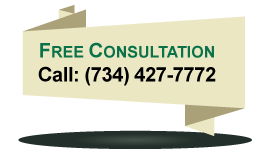Although Chapter 7 bankruptcy may not be a viable option for all those seeking a permanent form of debt relief, there is still hope through other forms of bankruptcy. Accordingly, if you are burdened by backbreaking debt and oppressive repayment terms, Chapter 13 bankruptcy could be the solution that allows you to repay your debt over time and prevent creditors from seizing your property. Keep reading to learn more about how Chapter 13 bankruptcy may be able to help you wipe your financial slate clean and move on with your life without oppressive debt.
- What is Chapter 13 bankruptcy?
- Do I qualify for Chapter 13 bankruptcy?
- Should I file for Chapter 13 or Chapter 7 bankruptcy?
- How does the Chapter 13 bankruptcy process work?
- Will I ever be able to get credit again?
- Why Attorney Nancy Neal Joyce?
What is Chapter 13 bankruptcy?
Chapter 13 bankruptcy is one of the two major forms of bankruptcy available to individuals (the other form is Chapter 7). Under Chapter 13, you typically do not need to liquidate your property. Instead, you pay off your debts under a three-to-five year court-approved repayment plan. Keep in mind that the court will bar your creditors from seizing your property during your repayment period as long as you don’t default on your payments.
Do I qualify for Chapter 13 bankruptcy?
You cannot file for Chapter 13 bankruptcy on behalf of a corporation or LLC, because only your personal property can be the subject of a bankruptcy action. You must also prove that you have sufficient income to meet the demands of the proposed repayment plan, and that your total debts do not exceed the statutory debt ceiling. Moreover, some debts such as domestic support obligations and tax penalties cannot be discharged no matter how low your income may be.
Should I file for Chapter 13 or Chapter 7 bankruptcy?
The bankruptcy court will not allow you to file for Chapter 7 bankruptcy if your income is deemed to high pursuant to the statutory Means Test. If you have high non-dischargeable debts, it might make more sense to file for Chapter 13 and pay off these debts under a fixed repayment plan. Finally, although under Chapter 7 your non-exempt property is liquidated to pay creditors, you might not have to liquidate any of your property under Chapter 13 even if some of it would be non-exempt under Chapter 7.
How does the Chapter 13 bankruptcy process work?
The first step in a Chapter 13 bankruptcy is to complete a credit counseling program. When you file for Chapter 13, you will have to list all of your creditors. After you work out a payment plan with your attorney and present it to the court, your creditors will have the chance to object to the plan. If the bankruptcy court accepts your repayment plan, it will issue an order preventing your creditors from seizing your property as long as you keep up with your payments. Once you complete your payments, the court will issue a discharge of any remaining indebtedness.
Will I ever be able to get credit again?
Yes, however, it all depends upon your specific set of circumstances. For instance, you probably won’t be able to get a car loan right after Chapter 13 bankruptcy, and you will likely have to wait at least a year or perhaps longer before obtaining a mortgage. In both cases, you may be subject to high interest rates and unfavorable loan terms for a while. However, obtaining credit isn’t impossible after a bankruptcy, and there are numerous steps you can take to improve your credit following a bankruptcy proceeding. Keep in mind that you may be inundated with credit card offers after you complete bankruptcy proceedings, because credit card companies know that you won’t be eligible for another bankruptcy debt discharge for several years following your Chapter 13 filing date. Do not be fooled or tempted by these offers, as they will likely be granted on extremely unfavorable terms.
Why Attorney Nancy Neal Joyce?
Nancy Neal Joyce has provided quality representation to a multitude of Chapter 13 clients. Call her Livonia, Michigan office at (734) 427-7772 to set up a face-to-face meeting or telephone conference with her. Your initial consultation will be completely free of charge. She will help you to prepare and file an individualized Chapter 13 petition based on your individual financial circumstances. Contact the firm today to learn more about how you can attain the financial freedom you deserve.

